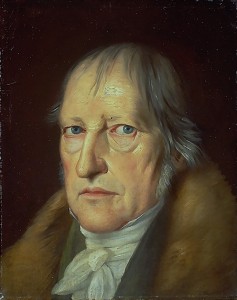 This essay attempts to defend a Hegelian form of patriotism. Specifically, there seems to arise the problem that a Hegelian view of patriotism is one that is based on blind habit, a rejection of conscience, and a rejection of ‘objective’ truth in ethics in favor of mere communal consent.
This essay attempts to defend a Hegelian form of patriotism. Specifically, there seems to arise the problem that a Hegelian view of patriotism is one that is based on blind habit, a rejection of conscience, and a rejection of ‘objective’ truth in ethics in favor of mere communal consent.
First, it is argued that Hegel’s view of objective ethics and conscience is tied to his understanding of a rational state, and hence should be seen as an attempt to give associative duties a proper foundation.
Further, it is argued that Hegelian patriotism must be understood not as a blind nationalist fervor, but instead as a potentially rational sentiment which gives rise to actions done for the sake of preserving the freedom of all citizens. In a healthy state this must involve, for example, institutional, communal, civil, and political participation.
Several aspects of what the content of this rational patriotism might include are examined, with a particular focus on the complexities and dilemmas surrounding the relation of religion to patriotism. It is concluded that such patriotism is rational and necessary for the maintenance and health of any modern state, even states that are members of cosmopolitan organizations like the UN.
Author: Stephen Hudson (PhD)
